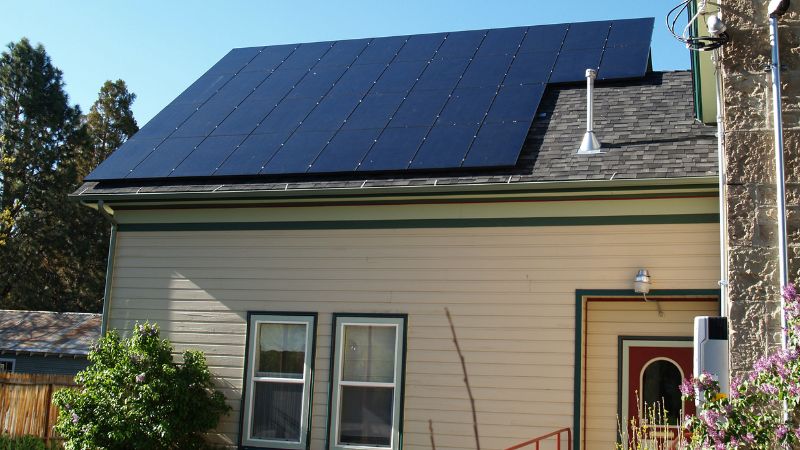Juggling around between “Are Tennessee Solar Leads good for solar power or not? If so, why?” Don’t worry. In this article, we will address all your doubts.
Tennessee is quickly establishing itself as a shining star of the solar industry, both in the area of small-scale residential solar systems and utility solar systems. As the price of solar panels continues to drop and the financial status of the solar sector improves in Tennessee, the state’s residents will only benefit from their solar energy systems.
Let’s have a look at the potential of TN solar leads:
As of the first quarter of 2023, there are 3527 residential solar panel installations, which are sufficient to power 93167 American households, according to a report by the Solar Energies Industry Association (SEIA).
Not only that, Tennessee has already seen some major installations. Here is a summary of them:
- Elora Solar, an affiliate of NextEra Energy Resources, has generated 191 MW, which is enough to light up 19,760 homes.
- The Millington Solar Farm project has generated 70 MW, which is enough to light up 7242 homes.
This is just the beginning. History is filled with countless numbers.
In this blog, we will discuss Tennessee solar leads’ fascinating and expanding role in the solar energy sector.
Key Takeaways
- Tennessee used to rank 16th among states with the highest electricity prices between the years 2020 and 2022, but it is currently in position 30.
- For an average electricity consumption of 1,183 KWH in Tennessee, the power bill is $141.13.
- According to the Green Energy Property Tax Assessment law, the state will only charge 12.5% of the total cost of the solar project as property tax.
- According to Solar Easement Laws, no construction can block the solar energy system from access to Sunlight.
- The TVA’s Dispersed Power Production Program lets businesses or small utilities directly purchase solar energy produced by installed PV panels.
So, without further ado, let’s dive into them.
Table of Contents
Why should Tennesseeans invest in residential solar panels?

One of the major reasons why the citizens of Tennessee should invest in solar panel systems is the high electricity bills.
According to the report of SaveonEnergy, the Volunteer State comes in at the 30th position for the highest cost ranking across all states with 11.93 /kWh as of 2023. This leads to a power bill of $141.13 for an average electricity consumption of 1,183 KWH.
In such scenarios, going solar can be a big financial help for homeowners. And since the state gets a superabundance of sunshine throughout the year, which makes the solar panels’ system more efficient, resulting in more savings on utility bills.
Moreover, Congress has passed a new Inflation Reduction Act in 2022, according to which all homeowners will get a 30% federal tax credit on their IRS filing for the installation of solar panels, a big relief for all American families.
To know more about the federal solar ITC and state-local rebate programs in detail, read Solar Tax Credit: A Guide for Residential Solar Energy Incentives.
In fact, it was one of the primary contributing factors to the exponential graph of residential solar leads in Tennessee. This investment tax credit (ITC) has provided significant financial aid in cutting down the overall costs of solar panel installation and opened the door to sustainable living for all the occupants of the state.
Additionally, there are state and other local incentive programs (which we will explore in the next section) that can help homeowners save on their solar energy systems and turn them into potential TN solar leads.
Tennessee State Solar Incentives

Tennessee offers two tax incentives to encourage residents to adapt to solar panel installation. Any homeowner who installs a solar energy system on their property would not be required to pay the full additional amount on the state’s property tax because, in Tennessee, PV systems are considered assets rather than liabilities.
Additionally, solar enterprises are eligible for a sales tax rebate. Thus, going solar is a financially viable alternative for both residential and commercial customers.
Furthermore, the state of Volunteer does not currently offer any additional solar rebates. Green Power Providers, a solar incentive program that offered financial support for renewable energy, once existed but stopped in 2019.
Green Energy Property Tax Assessment

As was stated earlier, the residents of Tennessee who have made investments in renewable energy for their homes only pay a portion of their property taxes. Therefore, if you have installed solar panels on your property, the state will only charge 12.5% of the total cost of your solar project as property tax.
For instance, if you buy a home in Memphis worth $200,000 and you install a PV system on your rooftop worth $15,000, then you will not be charged $215,000 for the property. Instead, the calculation will go like this:
12.5% * $15,000 = $1875
Taking into account the 0.6% property tax rate. So, you will be additionally net paying of:
0.6% * $1875 = $11
Thus, your annual property tax will only be increased by $11.
Also, if you want to maximize your savings and learn more in-depth, sign up to be one of our potential residential solar leads in Tennessee, and we’ll put you in touch with the state’s most reliable local solar companies.
Check More- How to Get Solar Leads: The Do’s and Don’ts
Sales Tax Credit for Clean Energy Technology

Over the course of time, a large number of companies have invested in the solar sector, employing countless people and contributing to the nation’s economic growth, all thanks to the initiatives run by the state government.
One such incentive program is the sales tax credit. This is particularly important for business owners. It states that anyone who is investing in solar panels for business purposes in Tennessee will be exempt from the 7% state sales tax credit.
For instance, if you run a business in Memphis and install a PV system on your commercial property worth $20,000, you will be able to save $1200 in the form of a sales tax credit during the purchase.
Tennessee Solar Easement and Access Laws

The Volunteer State has Solar Easement Laws, according to which, no construction can block your solar energy system from access to Sunlight. The state government would provide compensation to the property owner if any planned building ended up becoming a barrier. Also, the incentive value is not fixed and varies with the interference or the maintenance clause.
The purpose of all these solar easement regulations is to benefit property owners so they can promote solar energy and help the environment. Additionally, this program covers all of the commercial, industrial, and residential sectors.
If you wish to look at a sample of the solar easement, the Tennessee Environment and Energy Conservation Agency has also made one available.
Tennessee Net Metering
The state’s inclination towards clean energy and a sustainable environment has resulted in more TN solar leads than ever before. In addition to the state solar incentive programs that we have shared, there is also a Net metering scheme.
The net metering policy is not strictly adhered to in Tennessee. However, the Tennessee Valley Authority (TVA)’s Dispersed Power Production Program allows businesses or small utilities to directly purchase solar energy produced by newly installed PV panels. It increases electricity production and provides employment opportunities for the solar energy sector.
The Dispersed Power program works in the following ways:
- The excess electricity generated by your solar panel system is paid for by the TV authority at a TVA’s avoid cost. This price is less than what you would pay at the retail level for electricity from your utility grid.
- The program is valid for 5 years and additional renewable sources of energy can be included like Wind, Biomass along with PV panels.
Check More– The Future Of Solar Power In The US – What To Expect?
Final Words
For solar companies to succeed, qualified Tennessee solar leads are crucial. With their assistance, they may increase the number of leads that result in actual sales, expedite their procedure for acquiring new clients, and ultimately contribute to the expansion of the solar industry.
And did you know,
Tennessee used to rank 16th among states with the highest electricity prices between the years 2020 and 2022, but it is currently in position 30?
What a remarkable development.
And with the aid of potential solar leads, whether residential or commercial, this may be maintained and expanded upon. Let the Volunteer State remain a ray of hope for a healthier and more breathing atmosphere.




